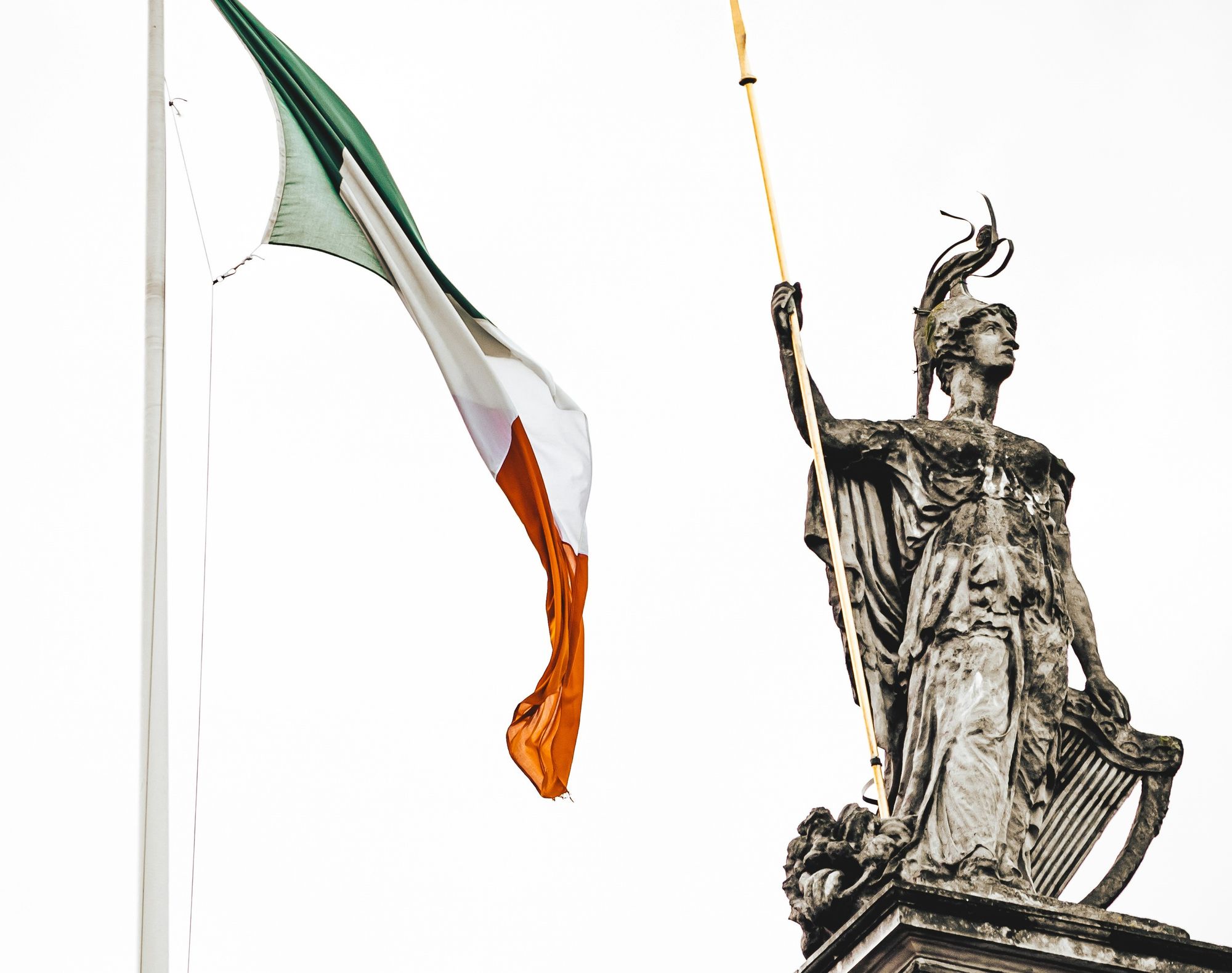Irish history has no shortage of “Snatching defeat from the jaws of victory” moments. The Battle of Kinsale is often held up as one of the chief turning points in Irish history. In 1602, following a successful campaign against English forces in Ireland, Hugh O’Neil led a major force to break an English siege of a Spanish fleet sent to aid the Irish campaign. On seeing the Irish forces, the English commander remarked “The Kingdom is lost” However, after a list of tactical errors, the English were able to win a defensive victory over the Irish. In 1796, while the Irish revolutionary Wolfe Tone was aboard a French fleet attempting to invade Ireland, adverse weather conditions prevented them from landing. Reflecting on the incident Tone remarked 'The English have had their luckiest day since Kinsale.'"
There were many on the Irish right that hoped that last week’s election would mark a breakthrough moment for nationalist candidates. The lead up to the election was marked by two years of rapid growth for the Right in Ireland. In November of 2022, small protests began outside the disused ESB offices in the inner-city Dublin suburb of East Wall. As the rate and pace of inward migration into the country began to escalate, the size and regularity of the East Wall marches began to grow. Throughout 2023, similar protests began to spread across the country, as local communities organised large scale marches and blockades of proposed asylum centres. The response from Ireland’s political and media class ranged from apathy to disdain.
This culminated in November 2023, when a man from Algeria attacked a group of children outside their primary school in inner-city Dublin. The result was a night of rioting through the city centre. While the riots drew acute disdain from Ireland’s political class, polling suggests that immigration began to rise as the number one issue of voter concern in the months that followed.
The migration crisis continued as a major issue in Irish politics throughout 2024, having two major flashpoints at Newtownmountkennedy, were locals blockaded the town against attempts by the state to place migrants in an asylum centre, and Coolock, where locals rioted against an attempt to place 500 male migrants into a disused paint factory. 2024 was also notable for cultural victories for the Irish right, with the care referendum, which sought to remove references to women and motherhood from the Irish constitution and the partial defeat of hate speech legislation. The Right were also able to make notable gains in the local elections in June.
However, what felt like a wave of success for many on the Irish right did not translate into the envisaged electoral beachhead for the New Right. Instead, the election results seem set to return the two major coalition parties from the previous Government. For over a decade, the Irish electoral landscape has been unique by European standards in that it lacks an ideological right wing party. Of the three major parties – Fine Gael, Fianna Fáil and Sinn Féin – none would be considered right wing by European standards.
Traditionally, Fine Gael would occupy the place of a centre right party in European politics. However, over the last 13 years in Government the party has overseen the social liberalisation of the country on issues such as abortion, spiralling increases in public spending and taxation and what may be the most liberal immigration policy in the European Union.
Fine Gael’s coalition partner, Fianna Fáil, are difficult to place on the political spectrum. The party’s founder Eamon De Velera once remarked “If I wish to know what the Irish want, I look into my own heart.” While the party opting for a more paternalistic approach is interesting, the end conclusion of this has been a party that stands for nothing. The party that only a few years ago sought to expel members for supporting the legalisation of contraception is now the party that helped facilitate the introduction of abortion legislation and oversaw the staggering mismanagement of the migration system.
The main opposition party in the last Parliament, Sinn Féin, is often cited as the main reason that a right wing nationalist party has failed to take off in Ireland, despite the conditions being perfect for it. As a result of the party’s association with the conflict in the north of Ireland, the party is able to maintain a veneer of a nationalist aesthetic while being radically on the left. However, arguably one tangible gain for the Irish right over the last two years is the rapid collapse of Sinn Féin and its nationalist credibility, having once been seen as a Government in waiting following uniquely high poll numbers.
There is a frustration on the Right that in spite of everything that has happened over the last two years the Irish electorate voted for the same two parties that have governed the state for over a century. However, this is escapism from accepting what is a ultimately a failure on the part of the Irish right. As noted by Dr Matt Tracey, approximately 14% of votes cast last week can be understood to have been cast against the liberal consensus. The two major parties had their combined worst result in the history of the state. While 42.7% of the population voted for the status quo, 57.3% voted against. Notably, this is against the backdrop of one of the worst voter turnouts in the history of the Irish state – suggesting that none of the major parties managed to capture the imagination of the Irish people.
The Right should be optimistic because we won 14% of votes, despite the flaws of the Irish right and not because of them. The foetal stage of the Irish right has been aesthetically interesting and has gone a long way to winning the culture war in Ireland. Anyone who has been in a smoking area of a Dublin pub, spoke politics at the family dinner table or simply just looked at the opinion polling knows that the speed of cultural success of the right has been almost unparalleled. Opinion polls are telling us that 1/3 of the Irish want to vote for a nationalist party. However, the problem is that no serious political vehicle exists yet.
Looking ahead, it seems that the next five years will be extremely tumultuous for the Irish economy and the migration crisis seems set to worsen for Ireland. The goal of the Irish right over the next five years needs to be to professionalise, to promote competent people to lead our movement and dispel petty factionalism and vote splitting.
While Ireland being an anomaly to the spread of Right wing nationalism and the collapse of incumbent Government’s across Europe has been disheartening for many, the reasons for optimism two weeks ago are still the reasons for optimism now.
Needless to say, the looney left have had their luckiest day since Kinsale.
Dean Céitinn,
Free Speech Ireland


